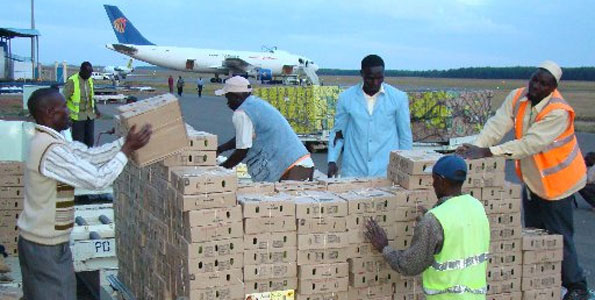Govt maintains 6 percent growth despite late rains
Finance, Economic Development and Investment Minister Professor Mthuli Ncube has maintained a growth rate of approximately 6 percent this year despite the country experiencing late rains.
Professor Ncube said the current rains have rejuvenated hopes for a better harvest following a dry spell at the beginning of the season.
However, he could not rule out the possibility of downgrading the growth rate since his assessment is based on prevailing weather conditions.
“If the weather patterns continue on this kind of trajectory, we should be able to achieve or at get close to achieving 6 percent target rate of growth this year, which is going to be a recovery following a drought year,” said Minister Ncube. “We are very bullish about the economy.”
He was speaking in a brief interview on the sidelines of a tour of a food processing production line at Sunway City yesterday being set up by Glytime Foods.
“We have had a late arrival of rains,” said Minister Ncube. “We are obviously waiting to see the full impact of this on agricultural output, which is critical to our recovery strategy and our projections.
“So we will be able to assess, I would say, four months from now, as to what that output looks like, and then be able to say whether we maintain the 6 percent rate of growth or not. But for now, we maintain it, because the rains have been very good of late, and that should give us a good harvest.”
Last year, Zimbabwe experienced an El Niño-induced drought considered the worst in 43 years.
The severe drought significantly impacted agricultural production and productivity, resulting in economic growth of only 2 percent.
While the El Niño season affected the entire Southern African region, Zimbabwe was among the most severely impacted countries
Agriculture dominates Zimbabwe’s economy and through its various establishments, the industry is one of the biggest employers in the country.
It is at the centre of the matrix of the economy by virtue of its central position within the value chain.
As such, it is critical to note that agriculture is not the backbone of the economy on the basis of its contribution to the gross domestic product, but on the basis of its position within the value chain of major sectors of the economy, particularly manufacturing.
Through backward and forward linkages between agriculture and other economic sectors is what forms the sector the mainstay of the economy.
Minister Ncube said the launch of the Targeted Finance Facility (TFF) by the Reserve Bank of Zimbabwe (RBZ) will facilitate the release of more liquidity into the productive sectors of the economy, thereby supporting the growth target.
Meanwhile, Minister Ncube has pledged a US$1 million investment in Glytime Foods through the National Venture Capital of Zimbabwe to support the expansion of the business.
“We have seen them grow over the last four years from strength to strength. They have moved from start-up,” Minister Ncube said.
“Now they are in that expansion phase, and we as Government (we) have got the National Venture Fund.
“So it is one of the projects that we are looking to invest into through the National Venture Fund.
“In a couple of days we will be launching three projects where the National Venture Fund is invested. But this is one of the projects that we are considering going forward to invest in for them to move forward.
“We are very, very proud of this project.
“We are very proud of the young people who have come up with it to show that they can move from straight out of university, out of college, and be able to become serious entrepreneurs.”
Venture capital firms invests in early-stage companies with high growth potential. The firms may not be profitable yet but have innovative ideas and disruptive technologies.
Venture capital firms help startups develop their business models, secure further funding, and ultimately achieve a successful exit through acquisition by a larger company.
Founder and chief executive of Glytime Foods, Mr Lesley Marange, said the company had already invested approximately US$4 million in the land, building and plant equipment. The new facility boasts a production capacity 24 times greater than its existing plant and will process up to 1500 kilogrammes of GMO-free, low-glycemic index, sugar-free, and cholesterol-free health products. food products per hour.
Sunway City is a Special Economic Zone (SEZ), which means Glytime enjoys the incentives that come with SEZ status.
“Our project is coming very strategic because we actually have a lot of products that are sugar-free,” said Mr Marange.
“We are also leveraging on the heritage-based initiatives where we (are) actually using our local value chain systems to come up with commercially viable projects. Currently we work with 24 districts in different parts of the country to consolidate our raw materials, your small grains, your honey, your baobab, your tamarind and all these other indigenous components that we use for our manufacturing processes.”
Boasting a rage of 23 products, Mr Marange said the expansion would offer them the opportunity to expand their regional footprint. The company already exports to Zambia, Botswana, Mozambique, and Malawi.
The company currently has 54 workers at its plant in Workington industrial area and upon completion of the expansion programme it will employ 180 prople.-herald









